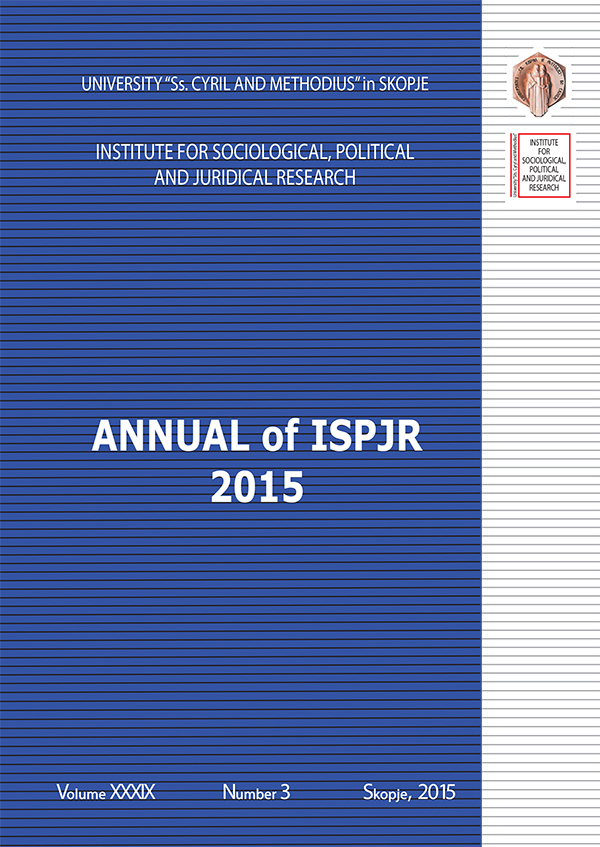VIRTUAL AND SOCIAL IDENTITY: CONNECTEDNESS, CONDITIONALITY AND DIFFERENCE
VIRTUAL AND SOCIAL IDENTITY: CONNECTEDNESS, CONDITIONALITY AND DIFFERENCE
Author(s): Maja Simonovska, Radmila Zivanovic, Emilija Stoimenova-CenevskaSubject(s): Communication studies, Sociology, ICT Information and Communications Technologies
Published by: Институт за социолошки и политичко-правни истражувања
Keywords: social identity; virtual identity; sense of belonging; new technologies;
Summary/Abstract: Social identity is created in a long and complex process, which includes the “meanings which one person assigns to him/herself, while having the perspective of the others,..” (Wendt, 1994). That means that the process entails acquiring knowledge and acceptance of the mutual characteristics, values, beliefs of a social community, which enables an emergence of sense of belonging, distinction but at the same time understanding the differences among one’s own group and the other groups. On the other side, the already formed individual, due to the contemporary technology forms its virtual identity in a very short time, and indentifies with groups and their values and symbols in a shorter period of time. The feeling that one belongs to these groups is very powerful and strong, and for some it represents a very important aspect of their identity. Looking at the existence of these identities we would like to look at their existence, conditionality, interconnectedness, creation and co-creation. Especially we would like to focus on the way that the existence of the first shapes or modifies the existence of the second. Thereby we are trying to give an answer what is the role of the context in the creation of these identities and whether the virtual world which creates context with different rules, also creates a virtual identity with different, specific characteristics.
Journal: Annual of the Institute for Sociological, Political and Juridical Research
- Issue Year: XXXIX/2015
- Issue No: 3
- Page Range: 25-36
- Page Count: 12
- Language: English

